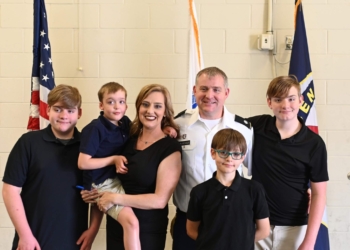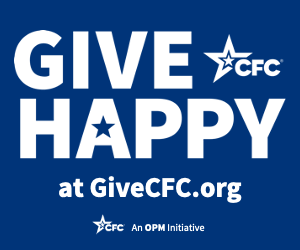Having grown up in a family in which assorted relatives served in the military, Reda Hicks thought she knew what being married to the Army would be like. She quickly learned she was wrong.
“When it’s your aunt or uncle or grandparents who served before you were born, it’s just different, right?” Hicks said. “You can hear their stories but you don’t see what the difficulties are firsthand.”
As a practicing attorney, Hicks soon found out career portability was a major issue facing military spouses. While on maternity leave with her first child, she became active in the Family Readiness Group at Fort Polk Army Base in Louisiana and a founding member of the Military Spouse JD Network (MSJDN), which advocates for licensing accommodations for military spouse attorneys. MSJDN has since championed successful efforts in 40 states to enable military spouse attorneys stationed in those states to be admitted to the State Bar under reciprocity rules.

“I figured I’m a lawyer. I’m an advocate at my day job. These are skills that I can put to use for my community,” stated Hicks, who was the 2014 Armed Forces Insurance Army Spouse of the Year.
And she has, particularly in the Houston area, where Hicks maintained the family home during her husband’s final seven years of geo-bachelor active-duty service. Today, she remains active in MSJDN as well as the Military Family Advisory Network, Bunker Labs’ Veterans in Residence program, Houston Salute to Service, and other civic and military organizations in her city.
While serving as legal counsel for a multinational transportation company, Hicks became an “accidental entrepreneur” when she set out to solve another problem affecting military-spouse business owners and small entrepreneurs. In 2017, Hicks launched GotSpot, Inc., an Airbnb-style platform that matches entrepreneurs, nonprofits, and enterprise businesses with vacant commercial space that is available for rent hours, days, or weeks at a time.
Hicks points out that a majority of military-spouse business owners are homebased and get locked out of growth opportunities if expanding their business requires a commercial space.
“There’s no legal protection for a commercial lease,” Hicks explained. “So, it’s either you find a space to be able to take on a bigger opportunity than you can handle in your home or you have to say no to an opportunity and you don’t get to grow. If you say no a few times in a row, the opportunities stop coming.”

Hicks describes the challenge of working full time as an attorney while serving as CEO of a startup as “spinning multiple plates,” but she notes military spouses are not unfamiliar with wearing multiple hats.
“There are amazing military spouses; they are running small businesses, they have young families, and their service member deploys,” Hicks said. “They are managing to make it all work and, quite frankly, often managing to make it look easy. It’s not … it’s definitely challenging to figure out how to balance it all, but it is 100% doable.”
The COVID-19 pandemic has produced unexpected hurdles for Hicks’ fledgling business. Shutdowns forced GotSpot to abandon multi-city expansion plans, but Hicks’ success in startup pitch competitions allowed her to keep two part-time military spouse employees on the payroll. In an otherwise quiet year for GotSpot, the pandemic also enabled Hicks to make the case for RescueSpot, which connects response organizations to underutilized commercial spaces during a community emergency or pandemic.

Hicks credits 2020 with providing valuable lessons, most notably that “anything can happen.” When it does, business plans must be quickly rewritten. GotSpot will relaunch this year with upgraded technology and plans to partner with businesses navigating a reopening economy.
“There are many important ingredients in entrepreneurship for military spouses, but perhaps the most important one is just giving yourself grace to be fluid in your expectations from one year to the next,” Hicks said. “Entrepreneurship is not a straight line, but especially when you are living a military lifestyle. It’s going to have its ups and downs, but that’s OK, because there’s no right way to do it.”
Hicks maintains military spouses make good entrepreneurs because they combine project management and networking skills with an essential but much less common ingredient — grit.
“There are many people who start a new business and the first time it’s kind of hard or something doesn’t work out, they throw their hands in the air,” Hicks said. “That wouldn’t be a military spouse, because we know it’s hard. We know sometimes it sucks, and we know sometimes the entire plan goes sideways and you just keep going.”

















































